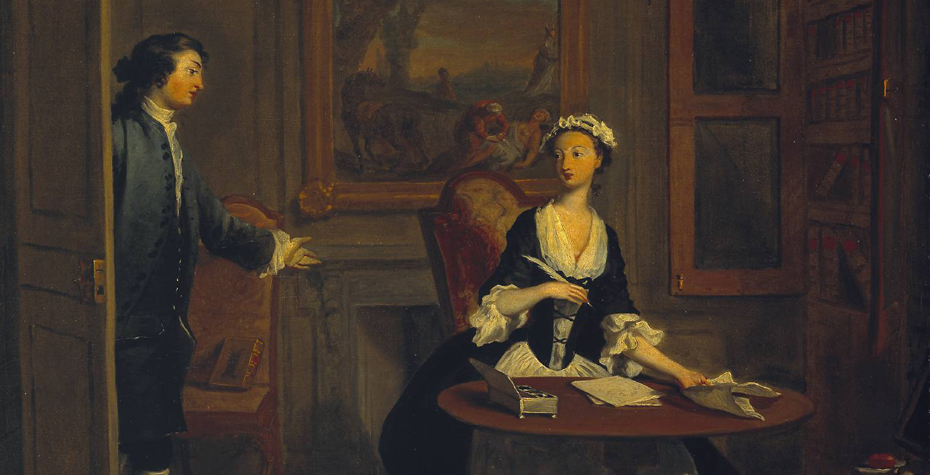National Endowment for the Humanities Grant to Support Research on 18th Century British Literature

Professor of English James Noggle has won a $50,000 grant from the National Endowment for the Humanities to support work on his latest project on the subject of nonconsciousness in 18th-century British literature.
During this period, many authors explored the intertwined ideas of sentiment and sensibility. As Noggle explains, “The culture… prioritized moments of emotional intensity and vividness,” the “eureka” moment when a character’s state of being becomes clear to them.
However, in his upcoming book, Unfelt Affect: Nonconsciousness in Eighteenth-Century British Literature, Noggle studies an important complementary perspective: those of emotional nonconsciousness, the ways in which British writers represent processes that change feelings, moods, and attitudes without the characters being aware of it. For example, Noggle says, “A heroine in a novel could find herself ‘insensibly’ succumbing to sexual desire; a religious doctrine could change ‘imperceptibly’ over time; or an angry man could be ‘secretly conscious to himself’ that violence is wrong.”
For Unfelt Affect, which received one of the prestigious NEH fellowships, he will examine diverse texts that will include the works of well-known authors such as Adam Smith, Eliza Haywood, Edward Gibbon, and Henry Fielding, possibly Samuel Richardson’s Pamela, as well as lesser known writers from a variety of cultural areas in the time period.
Noggle’s previous books are The Skeptical Sublime (Oxford, 2001) and The Temporality of Taste (Oxford, 2012), and he serves as an editor of the Norton Anthology of English Literature (2005-present). “Taste and the sublime are psychologically dramatic experiences,” he says. “The affects discussed in my new book are perhaps even more powerful for being unfelt, stealing upon us unawares and shaping our capacity for mental drama ahead of time.”
